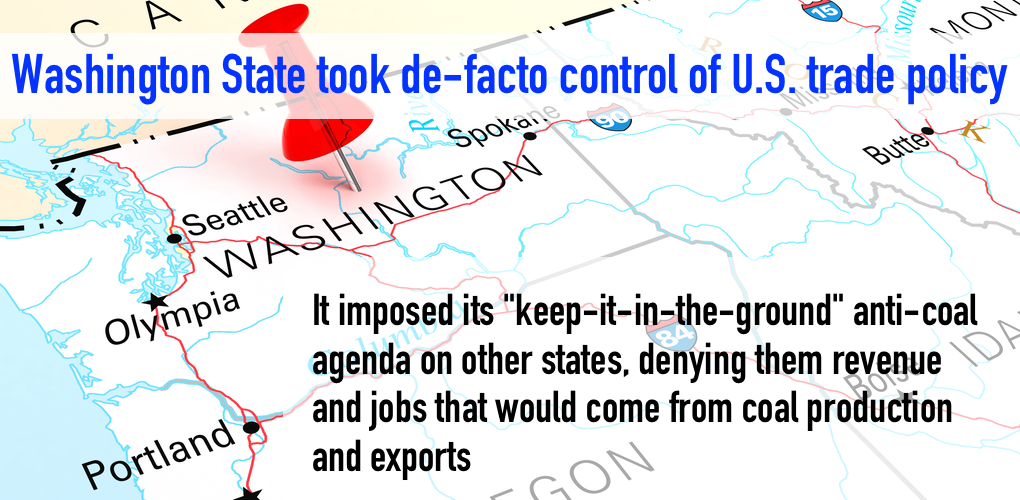
Ending the Abuse of Section 401 Permitting
Global demand for coal remains strong. In fact, coal remains the world’s leading fuel for electricity generation and hundreds of new plants – particularly in Asia – are either planned or already under construction. But despite the world’s largest coal reserves, relatively little American coal is making it into a booming Asian market. The problem has been a lack of coal export capacity on the West Coast and state abuse of a provision of the Clean Water Act to block the construction of new export terminals.
Fortunately, new clarification from the U.S. Environmental Protection Agency (EPA), is finally putting to bed the abuse of Section 401 certification that has derailed critical energy infrastructure permitting.
States across the country have weaponized 401 certification to block energy and infrastructure projects of all kinds, not for legitimate water quality concerns but for political ideology.
Washington State hijacked 401 certification to impose its keep-it-in-the-ground agenda on coal-producing states like Wyoming and Montana by blocking certification of the Millennium Bulk Terminal. Washington State took de-facto control of U.S. trade policy, imposing its agenda on other states, denying them revenue and jobs that would come from coal production and exports.
The 401 certification arrow has now been removed from the ideological quiver. EPA Administrator Andrew Wheeler said of the intent of the clarification, “We support a state’s right to make decisions based on its best interests, but our system of republican democracy does not allow for one state to dictate standards or decisions for an entire nation.”
The EPA’s new rule – which has come at the urging of lawmakers like Senator Barrasso of Wyoming – clarifies the scope of certification and reins in a permitting process run completely amok.
Katie Sweeney, executive vice president and general counsel for the National Mining Association (NMA), explained toThe Washington Examiner, the Section 401 certification process is “an important part of the Clean Water Act. We just don’t want it to be misused.” She added, one of the most important clarifications by EPA is in the scope of what states can consider for certification decisions. “It’s limited to issues that impact water quality. You would think that’s self-evident, but it has not always been used that way,” she said.
Rich Nolan, NMA’s president and CEO, said, “Decisions on 401 applications have dragged out for years, putting projects in jeopardy and exacerbating the already woefully inefficient permitting process hampering so many U.S. mining projects. This new clarity on the timeframes for certification, the scope of certification review and other procedures, is an important step in promoting smart investment in our country’s natural resources and infrastructure projects.”
And promoting smart investment in natural resources and infrastructure will be all the more important as the nation aims to chart a path towards economic recovery. Whether coal export terminals, mining projects, pipelines or new roads, it’s essential we have a permitting approach in place that encourages safe, thoughtful projects, allowing commerce to flourish and for the nation to enhance the infrastructure that moves vital fuels and materials to market both at home and abroad.
Approving coal export capacity on the West Coast is long overdue. American coal, produced under the world’s leading environmental and safety protections, can help meet soaring energy demand in Asia, bringing affordable, reliable energy to those who need it, while also providing much-needed economic stimulus right here at home.
- On June 3, 2020
